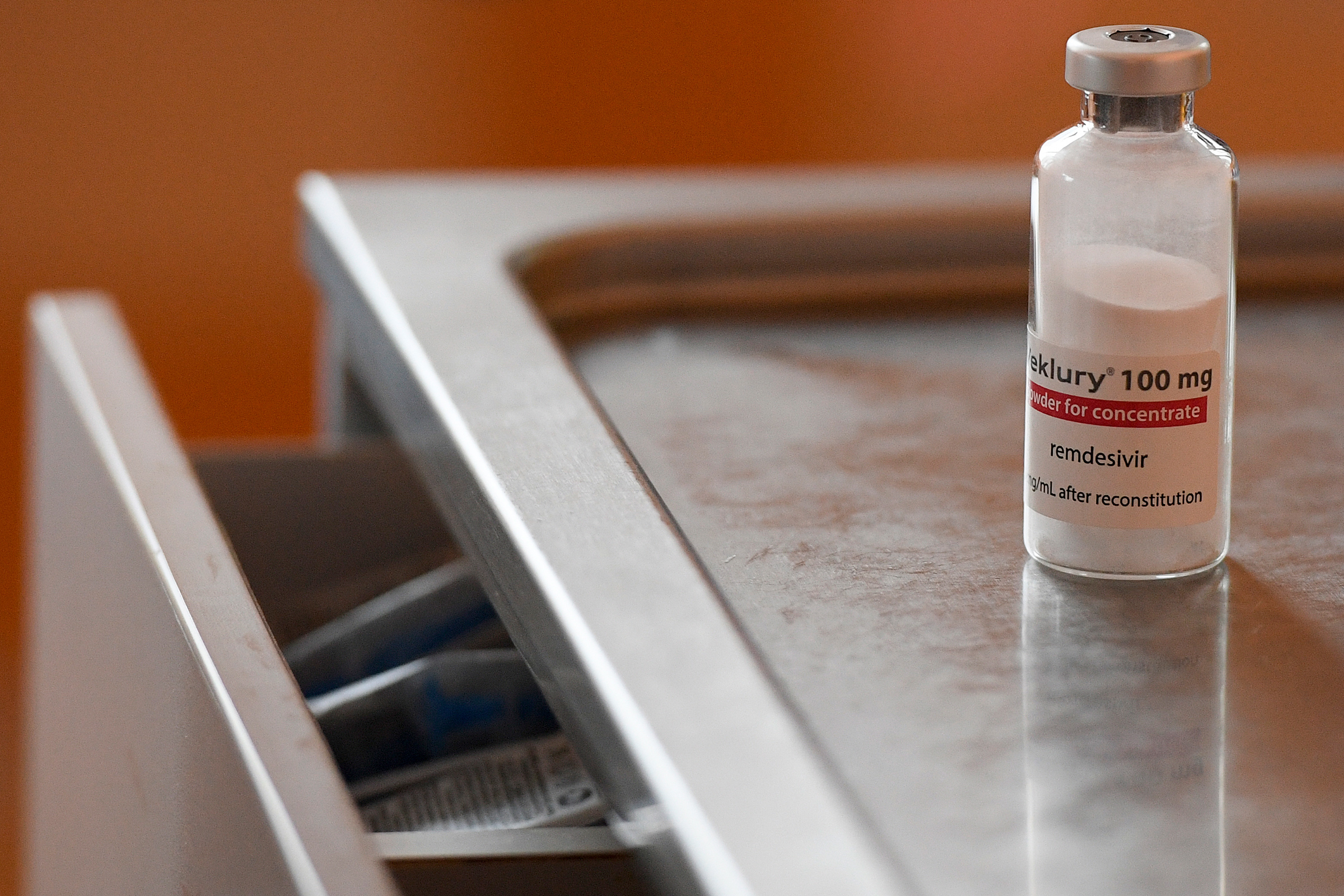
In a report published Oct. 8 in the New England Journal of Medicine, researchers confirmed the benefits of remdesivir for treating people hospitalized for COVID-19.
Remdesivir, an antiviral drug, has emergency use authorization (EUA) from the U.S. Food and Drug Administration (FDA) for treating anyone hospitalized for COVID-19. That authorization means that doctors can prescribe the intravenous (IV) drug for people who are infected with SARS-CoV-2 and have been hospitalized. While the drug was initially authorized only for those who needed supplemental oxygen or ventilators to breathe, an expanded EUA from the FDA in late August reflects the growing belief among doctors that treating people who aren’t as sick might provide even more benefit—so now includes people with evidence of respiratory infections but don’t yet need supplemental oxygen or help from a ventilator.
Remdesivir works by stymieing the virus’s ability to make more copies of itself, and in trials has helped both patients with early-stage COVID-19 as well as those with more advanced symptoms.
In the latest report, researchers led by a team at the National Institute of Allergy and Infectious Diseases provide the final data on a study they first released in May. In the final analysis, which included 1,062 people who were randomly assigned to receive IV remdesivir or a placebo for up to 10 days while in the hospital, the researchers provide more detailed data on how the drug affected metrics including how long people needed to be given supplemental oxygen or put on ventilators. All of the participants showed evidence of respiratory infection, mostly pneumonia, and 85% were considered to have severe disease, which meant that they had at least one of three symptoms: their blood oxygen levels were below 94% while breathing room air; they required supplemental oxygen; or they needed a ventilator to breathe. Among all the participants—both with severe COVID-19 and with more mild symptoms—those given remdesivir were able to be discharged from the hospital on average five days sooner than those receiving placebo.
“These data reinforce the value of remdesivir in hospitalized patients,” says Dr. John Beigel, associate director of clinical research in the division of microbiology and infectious disease at NIAID. While the preliminary study provided mortality data after 15 days, the full study followed study participants for 28 days and found that among those receiving remdesivir compared, 11% passed away compared to 15% among the placebo group. While that is not a statistically significant difference (the study wasn’t large enough to include a statistically sufficient number of deaths in each group) “it is still a significant improvement,” says Beigel. He notes that the mortality rates, taken together with other metrics including the fact that people on remdesivir spent less time on oxygen and fewer days in the hospital, support the overall benefit of the drug.
In addition, notes Beigel, the drug seemed to help not only those people who’d had symptoms for more than 10 days, but also whose who’d shown symptoms for less than 10 days. That’s leading researchers to study more specifically how the drug affects patients who are in earlier stages of COVID-19.
Those trials are exploring whether remdesivir can reduce progression of COVID-19 even in people who aren’t hospitalized, and potentially keep them from getting sick enough to need admission. “Knowing how respiratory viral infections work, and how this drug works, it would make sense,” Beigel says. “There is no reason to think it wouldn’t work for out patients; but they need to do the studies.”
The only challenge for now is that remdesivir is an IV drug, and the logistics of managing IV infusions for people who aren’t hospitalized could limit its use. But the drug’s manufacturer, Gilead, says it is testing on an inhaled version of the drug that would be easier for patients to take.
More Must-Reads from TIME
- Cybersecurity Experts Are Sounding the Alarm on DOGE
- Meet the 2025 Women of the Year
- The Harsh Truth About Disability Inclusion
- Why Do More Young Adults Have Cancer?
- Colman Domingo Leads With Radical Love
- How to Get Better at Doing Things Alone
- Michelle Zauner Stares Down the Darkness
Contact us at letters@time.com